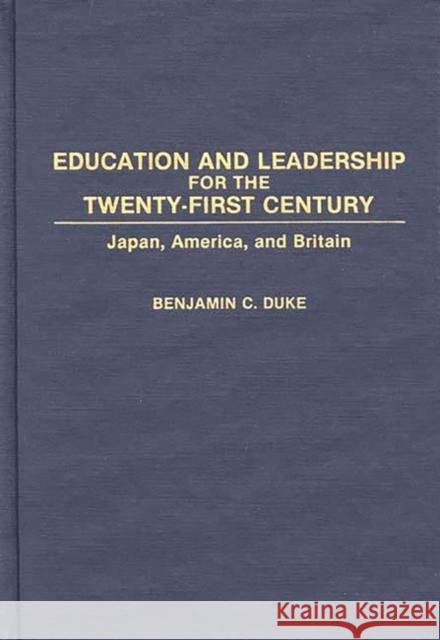Education and Leadership for the Twenty-First Century: Japan, America, and Britain » książka
Education and Leadership for the Twenty-First Century: Japan, America, and Britain
ISBN-13: 9780275939861 / Angielski / Twarda / 1991 / 184 str.
Given the grave global crises we face on the eve of the twenty-first century, the quality of leadership that will emerge in coming decades is of vital concern worldwide. This case study of secondary education in Japan, America, and Britain gives us a detailed comparative analysis of leaders-in-the making in the Old World, the New World, and modern Asia. Benjamin C. Duke looks at the educational methods and environments that are shaping future leaders; the attitudes and perceptions that will ultimately influence their capacities and styles; and how these factors may affect the political and economic future of nations, regions, and the international community as a whole.
In his two-year study, Duke surveyed 3,000 students enrolled in 40 outstanding secondary schools that are likely to produce leaders in their respective countries in the twenty-first century. Through questionnaires, classroom observation, and interviews with students, teachers, and administrators, the author documents national educational approaches and the values, character traits, and perceptions they are designed to mold. Duke finds striking differences between the more innovative British and American models, on the one hand, and the traditional and unchanging Japanese method, which stresses preparation for exams and does little to encourage active student participation in the educational process. The author argues that Japan is educating leaders who will encourage harmony and consensus but be unable to provide the bold, creative leadership required to deal with the new Asian superpower's enormous international responsibilities. Written by a specialist in comparative and international studies, this book offers much that is new in terms of both comparative educational analysis and an understanding of Western-Asian relationships in an era of rising Japanese power.











